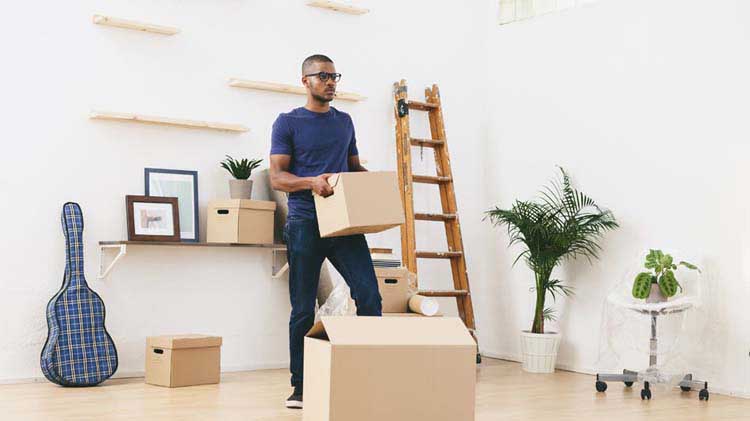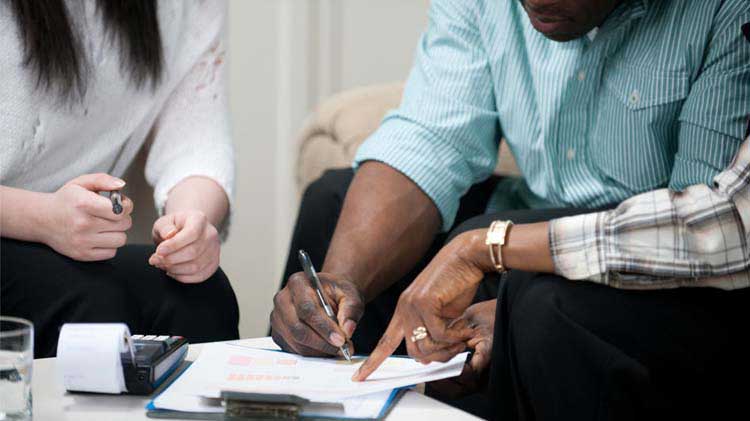Things to think about when preparing for move in day
Know the details for moving into an apartment. Remember, have your moving questions answered by your landlord.
Before your move in date, make sure you know all the necessary details. Packing up your possessions, transporting them safely, storing them temporarily — nothing should be left unplanned before this date and all your questions should be answered. Most importantly, everything you discuss with your landlord should be included in your rental agreement.
Things to do when moving into an apartment
- Make sure your renters insurance is in place. Landlords' insurance does not usually cover the tenants' possessions. Coverage for property damage and loss, such as theft, vandalism and fire, is entirely up to the tenant. Without renters insurance from a company like State Farm®, you may have to bear the financial burden of a loss on your own. Make sure your policy is effective on move in day and that you have adequate renters insurance coverage. You may consider contacting a State Farm agent to make sure your insurance needs are covered.
- Confirm your move in date. Ask if other tenants are moving into the building the same day as you (if your landlord owns multiple units in your building). Also, be cautious of holiday times and events going on in the community. Holidays might give you a few extra days to move in but also are a popular time for moving. Community events might cause traffic issues.
- Ask about new locks. It's usually the landlord's responsibility to change the locks between tenants. Even if prior tenants returned their keys, there might be duplicates floating around. If your landlord isn't planning to change the locks, you should ask him or her to do so. It's common for landlords to keep copies of your key on-site (in case of lockouts). If they have copies of keys on-site, they should be in separate lockboxes so that if other tenants get locked out, they don't gain access to your key.
- Make sure you have the keys. Ask your landlord when and how you will be receiving your keys. Make sure you have your keys (and that they work) before move in day. It would be unfortunate to pay movers by the hour and not be able to get into your new apartment.
- Ask about what the landlord did to prepare the unit. Your landlord will likely clean the unit, and you can usually negotiate your decorating ideas (like painting) before moving in. If you're expecting certain tasks to be completed before moving in, make sure you add them to your rental agreement, especially if there are major renovations.
- Consider a moving pod. Moving pods are large storage containers placed in a driveway or parking lot that provide you flexibility to pack and unpack at your leisure. Moving pod companies give you the option to choose the size of container and length of time you need it. Your cost is based on what you select and distance traveled. Check with your landlord to make sure they are comfortable with you placing them in the apartment's parking lot.
- Find out the best way to move in. Talk to the landlord about what doors/elevators should be used, and the best place to park the moving truck or place the moving pod. Large buildings might have a loading dock that leads to a service elevator (your landlord should provide you instructions on where to go). For smaller buildings, your landlord will likely advise you to use an alley, a particular parking spot or help you block off curb space for your truck. Ask your landlord for instructions to make sure everything goes smoothly on your move in day.
- Make sure you know what to do if something doesn't go as planned. Find out what you should do if you're locked out or accidentally put a hole in the wall. Some landlords have a 24-hour locksmith service on call. It's more common, however, for landlords to keep copies of your unit keys on the property (typically in a lockbox). You should notify your landlord immediately if something goes wrong.
{{quote-token-renters}}
It is key to prepare questions to ask your landlord, but it's also important to pay attention to the answers. Your new landlord should answer all your questions in a helpful way. Don't be afraid to ask for further explanation or to ask for what you need. It's better to communicate your needs before you sign the rental agreement. And remember, your rental agreement should be thorough and accurately reflect your landlord's answers.




